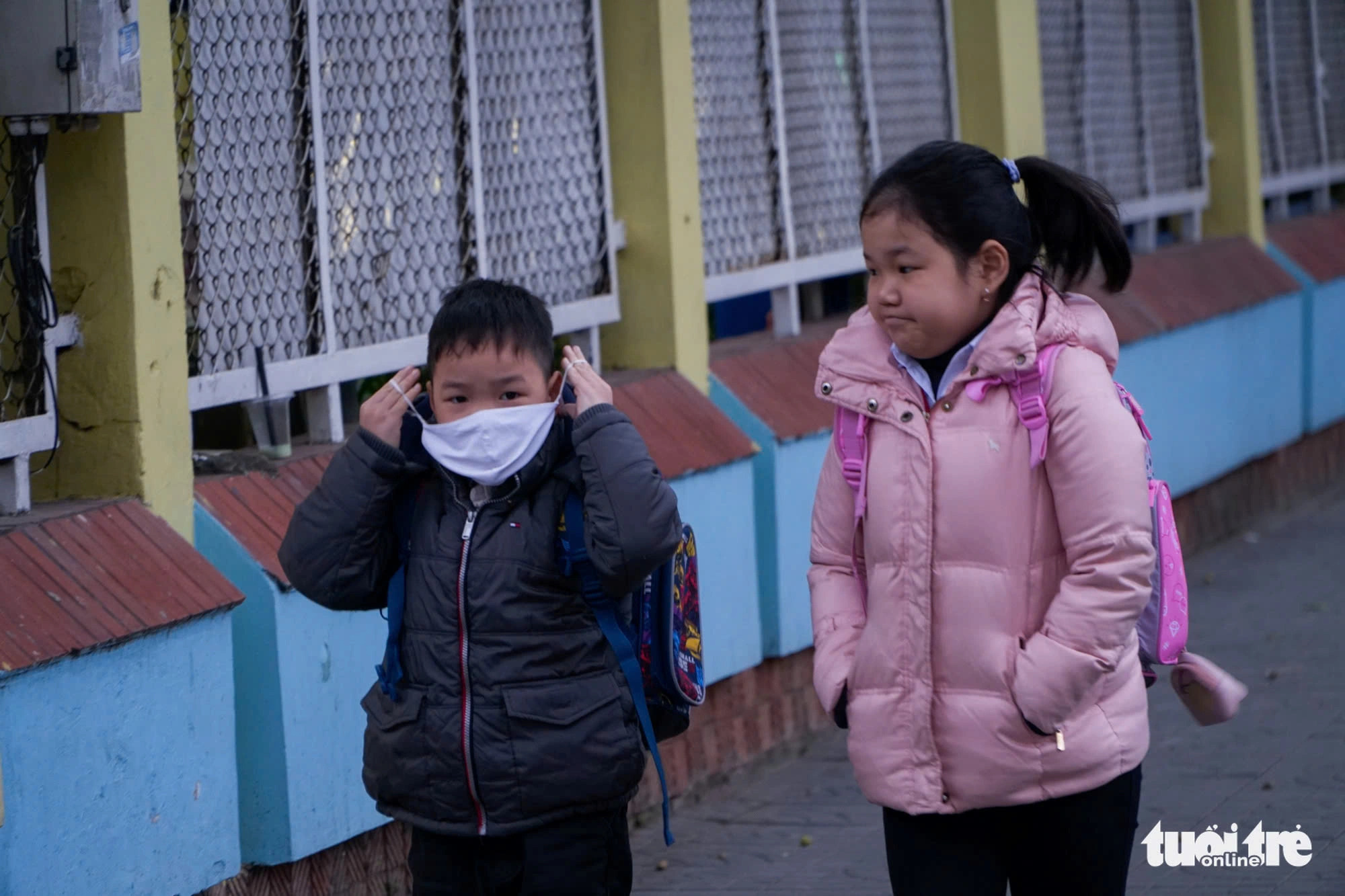As temperatures drop, the administration in Hanoi on Monday issued a directive calling for urgent measures to protect public health, particularly for students, workers, and vulnerable groups, against the impacts of severe cold weather conditions.
As per the directive, the Hanoi Department of Health was assigned to closely monitor weather conditions and issue timely warnings to the public.
Hospitals and medical facilities are required to ensure an adequate supply of emergency medication, hospital beds, and necessary equipment for treating cold-related illnesses.
The municipal Department of Education and Training was tasked with ensuring that schools take adequate precautions to keep students warm in classrooms.
Schools must also work with health authorities to educate students and parents on staying safe in cold weather.
Authorities should consider adjusting school schedules if temperatures drop too low, in line with existing regulations.
According to Hanoi’s 2022 winter weather policy, kindergarten and elementary school students are allowed to stay home if outdoor temperatures fall below 10 degrees Celsius, while middle school students are excused from attending school if mecury drops below seven degrees Celsius.
Schools are advised to follow Vietnam Television (VTV1) and Hanoi Television (H1) forecasts at 6:00 am daily to make decisions about schedule changes.
The Department of Labor, Invalids, and Social Affairs was tasked with enforcing cold-weather protection measures at social welfare centers, elderly care facilities, and shelters.
Inspections will be intensified to ensure adequate heating, food, and clothing for residents.
The Department of Construction must ensure safe working conditions for construction workers, including providing proper shelter, heating, and warm clothing.
Authorities will conduct on-site inspections to ensure compliance with health and safety regulations.
The Department of Finance was told to coordinate with the Health Department and relevant agencies to allocate necessary funds for cold weather protection, including purchasing essential medical supplies and emergency response equipment.
District-level authorities were charged with monitoring high-risk locations, including schools, hospitals, social welfare centers, outdoor workplaces, and wet markets, to enforce cold-weather safety measures.
They must also collaborate with community organizations to educate the public -- especially the elderly, children, and outdoor workers -- on winter health protection.
A key public advisory in the directive warns citizens not to use charcoal or coal stoves for heating indoors, as these pose severe risks of carbon monoxide poisoning.
Like us on Facebook or follow us on X to get the latest news about Vietnam!























































